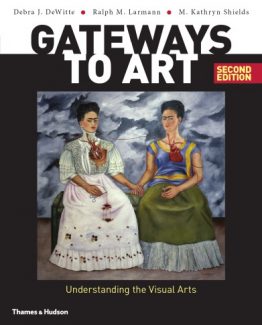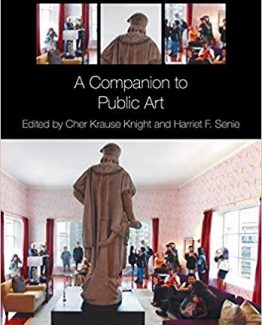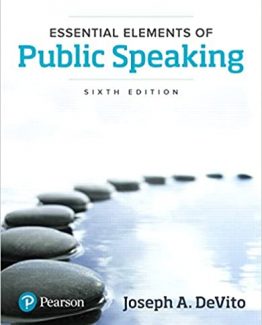Critical Thinking: A Student’s Introduction 6th Edition by Gregory Bassham, ISBN-13: 978-0078038396
[PDF eBook eTextbook]
- Publisher: McGraw Hill; 6th edition (December 4, 2018)
- Language: English
- 544 pages
- ISBN-10: 0078038391
- ISBN-13: 978-0078038396
In a hyper-connected digital world buzzing with both information and illogic, facts and spin, critical thinking has never been more challenging or important. This popular, learner-friendly text gives today’s students the critical reasoning tools they need to survive and thrive–in school, in their careers, and in life. It covers all the basics of critical thinking, using class-tested real-world examples and a proven step-by-step approach. Its comprehensiveness allows instructors to tailor the material to their individual teaching styles, resulting in an exceptionally versatile text.
Table of Contents:
Preface
CHAPTER 1 Introduction to Critical Thinking
What Is Critical Thinking?
Critical Thinking Standards
Clarity
Precision
Accuracy
Relevance
Consistency
Logical Correctness
Completeness
Fairness
The Benefits of Critical Thinking
Critical Thinking in the Classroom
Critical Thinking in the Workplace
Critical Thinking in Life
Barriers to Critical Thinking
Egocentrism
Sociocentrism
Unwarranted Assumptions and Stereotypes
Relativistic Thinking
Wishful Thinking
Qualities of a Critical Thinker
CHAPTER 2 Recognizing Arguments
What Is an Argument?
Identifying Premises and Conclusions
What Is Not an Argument?
Reports
Unsupported Assertions
Conditional Statements
Illustrations
Explanations
CHAPTER 3 Basic Logical Concepts
Deduction and Induction
How Can We Tell Whether an Argument Is Deductive or
Inductive?
The Indicator Word Test
The Strict Necessity Test
The Common Pattern Test
The Principle of Charity Test
Exceptions to the Strict Necessity Test
Common Patterns of Deductive Reasoning
Hypothetical Syllogism
Categorical Syllogism
Argument by Elimination
Argument Based on Mathematics
Argument from Definition
Common Patterns of Inductive Reasoning
Inductive Generalization
Predictive Argument
Argument from Authority
Causal Argument
Statistical Argument
Argument from Analogy
Deductive Validity
Inductive Strength
CHAPTER 4 Language
Finding the Right Words: The Need for Precision
Vagueness
Overgenerality
Ambiguity
The Importance of Precise Definitions
Types of Definitions
Strategies for Defining
Rules for Constructing Good Lexical Definitions
Emotive Language: Slanting the Truth
The Emotive Power of Words
Euphemisms and Political Correctness
CHAPTER 5 Logical Fallacies—I
The Concept of Relevance
Fallacies of Relevance
Personal Attack (Ad Hominem)
Attacking the Motive
Look Who’s Talking (Tu Quoque)
Two Wrongs Make a Right
Scare Tactics
Appeal to Pity
Bandwagon Argument
Straw Man
Red Herring
Equivocation
Begging the Question
CHAPTER 6 Logical Fallacies—II
Fallacies of Insufficient Evidence
Inappropriate Appeal to Authority
Appeal to Ignorance
False Alternatives
Loaded Question
Questionable Cause
Hasty Generalization
Slippery Slope
Weak Analogy
Inconsistency
Composition and Division
CHAPTER 7 Analyzing Arguments
Diagramming Short Arguments
Tips on Diagramming Arguments
Summarizing Longer Arguments
Paraphrasing
Finding Missing Premises and Conclusions
Summarizing Extended Arguments
Common Mistakes to Avoid in Standardizing Arguments
CHAPTER 8 Evaluating Arguments and Truth Claims
When Is An Argument a Good One?
What “Good Argument” Does Not Mean
What “Good Argument” Does Mean
When Is It Reasonable To Accept a Premise?
Refuting Arguments
Appendix: Sample Critical Essay
In Defense of Cheating by Joe Kribs
Sample Critical Essay
CHAPTER 9 A Little Categorical Logic
Categorical Statements
Translating into Standard Categorical Form
Categorical Syllogisms
CHAPTER 10 A Little Propositional Logic
Conjunction
Conjunction and Validity
Negation
Deeper Analysis of Negation and Conjunction
Disjunction
Conditional Statements
CHAPTER 11 Inductive Reasoning
Introduction to Induction
Inductive Generalizations
Evaluating Inductive Generalizations
Opinion Polls and Inductive Generalizations
Statistical Arguments
Reference Class
Induction and Analogy
What Is an Analogy?
How Can We Argue by Analogy?
Evaluating Arguments from Analogy
Arguing by Analogy
Induction and Causal Arguments
Correlation and Cause
A Few Words about Probability
A Closer Look at a Priori Probability
CHAPTER 12 Finding, Evaluating, and Using Sources
Finding Sources
Refining Your Search: Questions and Keywords
Directional Sources
Informational Sources
Evaluating Informational Sources
Content: Facts and Everything Else
The Author and the Publisher
The Audience
Evaluating Internet Sources
Taking Notes
Bibliographical Information
Content Notes: Quotes, Summaries, and Paraphrases
Using Sources
Acknowledging Sources
Incorporating Sources
CHAPTER 13 Writing Argumentative Essays
Writing a Successful Argument
Before You Write
Know Yourself
Know Your Audience
Choose and Narrow Your Topic
Write a Sentence That Expresses Your Claim
Gather Ideas: Brainstorm and Research
Organize Your Ideas
Writing the First Draft
Provide an Interesting Opening
Include a Thesis Statement
Develop Your Body Paragraphs
Provide a Satisfying Conclusion
After the First Draft
Read What You Have Written and Revise
Consider What You Have Not Written and Revise
Show Your Work
Edit Your Work
Hand It In
Sample Argumentative Essay
CHAPTER 14 Thinking Critically about the Media
Mass Media and Social Media
The News
Critically Analyzing News Sources
Social Media and the Rise of Fake News
News Media Bias
Bias toward Business Interests
Bias toward Entertainment
Political Bias
Media Literacy
Advertising
What Ads Do
Defenses of Advertising
Criticisms of Advertising
Common Advertising Ploys
CHAPTER 15 Science and Pseudoscience
The Basic Pattern of Scientific Reasoning
The Limitations of Science
How to Distinguish Science from Pseudoscience
A Case Study in Pseudoscientific Thinking: Astrology
Appendix: The Six Habits of Effective Problem Solvers
Answers to Selected Exercises
Index
Gregory Bassham is Professor and Chair of the Philosophy Department at King’s College (Pa.). He is the author or editor of seven books, including The Lord of the Rings and Philosophy (2003), The Ultimate Harry Potter and Philosophy (Wiley, 2010), and The Hobbit and Philosophy (forthcoming 2012).
William Irwin is Professor of Philosophy at King’s College, author of eleven books, and Series Editor of the Blackwell Philosophy and Pop Culture series.
Henry Nardone is Emeritus Professor of Philosophy at King’s College. His publications include scholarly articles on critical thinking and aesthetics.
James M. Wallace, Professor of English at King’s College, is the author or co-author of two books, including Critical Thinking (4th ed., 2011).
What makes us different?
• Instant Download
• Always Competitive Pricing
• 100% Privacy
• FREE Sample Available
• 24-7 LIVE Customer Support






Reviews
There are no reviews yet.